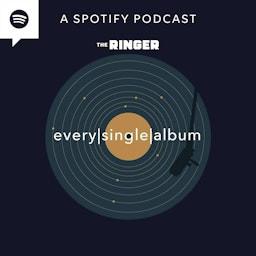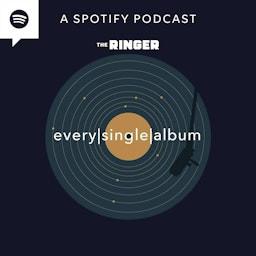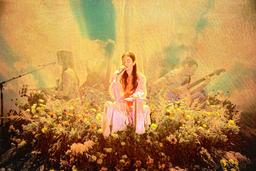The last time Lorde released an album, in 2021, she was in the sun, on the sand, and she wasn’t wearing pants. Solar Power, her blissed-out and sun-tanned third album, had Lorde enjoying such simple pleasures as throwing her phone into the ocean and getting high in the mani-pedi chair.
The album was all right—music you might play while serving guests an heirloom tomato dish and looking for fireflies on a summer night. But it also sounded a bit like a collection of a wellness influencer’s manifestations. It didn’t sound like Lorde. Well, four years (and a presumed stop at the Apple Store) later, Lorde sounds like Lorde again.
Since April, when she popped up in Washington Square Park in New York City to debut the single “What Was That,” Lorde has been rolling out her fourth album, Virgin, due Friday. So far, it features aesthetic and musical nods to her first two albums, especially her sophomore album, Melodrama. The vignettes that open “What Was That” mirror the beginning of “Green Light,” and a key lyric, “since I was 17,” places the listener right back in the age of “Royals,” which was released when the singer was a teen. The track “Man of the Year” shares some of the sparsely glamorous production of “Liability,” and “Hammer” wouldn’t sound out of place next to “Supercut,” or “Perfect Places,” with its anxiously pulsating dancefloor beat.
But perhaps even more meaningful than the production choices, Lorde’s return to form includes a return to the city, to people (rather than nature), and to grappling with the feelings, devastations, and complicated pleasures of modern life, which are the ones we need her for. On Solar Power, she said she loved the beach. She’s such a damn liar. Despite the familiarity in the rollout, the album title alone suggests Lorde sees this music as something new. Which sets up the question of Virgin: What is it that’s new for her? Or for us?
Much of Virgin seems to grapple with Lorde’s changing relationship with her body, as she recovers from an eating disorder and embraces an evolving gender identity. “Some days I’m a woman, some days I’m a man,” she sings on “Hammer,” the album’s third single, which quotes an Instagram caption she wrote two years ago. The album art, an X-ray of her pelvis, IUD and all, casts this new music as a look at her interior in the bluntest terms.
Of the first three singles, “Hammer” is the easiest to get into. It has a skittish energy, with a kick drum that will make you move and lyrical juxtapositions as Lorde sings about a beautiful life that involves getting an ear piercing on Canal Street, having her aura photographed, and deciding it’s OK that she doesn’t “have all the answers.” This song could make you cry and it could make you dance, which is to say that it’s a more-than-solid Lorde song. It feels like an evolution, or at least a middle ground, with her feet more solidly on the pavement than in anything on Solar Power but her mind open to more murkiness than before. Early on in her career, Lorde used a lot of declarative sentences in lyrics. “We’ll never be royals.” “I’ll be seeing you down every road.” There are looser lyrical ends here.
“Hammer” is the album opener, which on past Lorde albums has meant it’s a song that sounds a lot like the bulk of the album. If that’s true again, Virgin is likely to be more up-tempo than the other two singles indicated.
And though the production team draws on her past, there are new names in the credits. Frequent Bon Iver collaborator Jim-E Stack cowrote and produced “Hammer” and “Man of the Year.” The two of them also worked on “What Was That” together, with the help of Dan Nigro, the collaborator of choice of pop’s current generation of introspective songwriters, including Olivia Rodrigo and Chappell Roan. Notably absent from Virgin is Jack Antonoff, who worked on all of Solar Power and nearly all of Melodrama. Lorde told Rolling Stone that Antonoff was a “positive, supportive collaborator,” but that she needed a new vibe.
The component parts of that new vibe come with questions—do Lorde’s drum sounds with Nigro sound the same as with Antonoff? Can she make these songs go from huge to tiny and back to huge again without former partner Joel Little?—that will be answered on the album. But another piece of what will make Virgin new, beyond what’s changed for Lorde over the past four years, is what’s changed for her audience, and whether that audience still craves what has made Lorde Lorde.
Her ability to look inward in razor-sharp detail, and then reflect those interiors in ways that are both recognizable and cathartic to a generation of young listeners, is what made her a phenom. It’s why “Royals,” the song that broke her career, basically served as a weathervane for pop music in the 2010s. It’s why right now, on Broadway, her song “Green Light” is functioning as the conduit for epiphany for the group of young women at the center of Kimberly Belflower’s play John Proctor Is the Villain. It’s what made people sprint to the “What Was That” pop-up in Washington Square Park.
There’s every reason to think that Lorde still has that fastball. The singles from Virgin, especially “Hammer,” suggest she does. Even more so, the song that kickstarted her return to putting out music, the “Girl, so confusing” remix she did with Charli XCX last year, proves it. That’s what makes the prospect of Lorde returning to form on Virgin so exciting.
The intrigue over how audiences will receive that return is driven by external factors. Over the past year, pop music has leaned away from introspection and toward spectacle. Think of Sabrina Carpenter, Chappell Roan, or even Addison Rae. Shtick. Camp. Fantasy. It’s easy to see how audiences might be less interested right now in hard, plain truths about the world, even if they’re processed through release or even euphoria. But that’s what makes this album interesting. Lorde is back. Who that is now, we’re about to find out.




